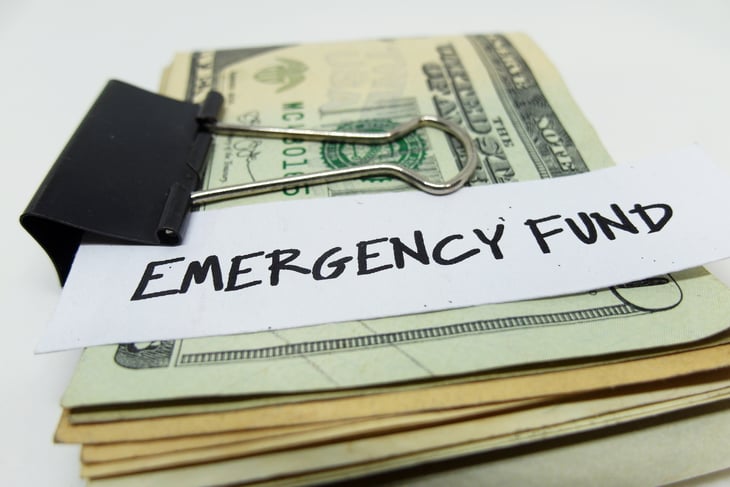
A new year usually comes with an armful of good intentions. Some of the more popular goals include finances and fitness — but of course, most fitness goals don’t make it past February before life gets in the way.
However, increasing your financial fitness isn’t as complicated as adopting a new exercise routine can be.
Following are some financial goals anyone can benefit from in the new year.
1. Have a healthy emergency fund

After years of painful inflation, many are reaching into their savings to cover basic household expenses.
A healthy emergency fund can prevent that. It can lessen the burden of an unexpected car repair or keep your household running smoothly during a job loss.
Not sure how much to set aside? Experts agree three to six months of household expenses is a good start toward keeping you covered. However, more than six months could be advantageous if a job change or move is in your future.
Whether you’re starting from $0 or looking for new ways to beef up your fund, check out “9 Tips for Starting an Emergency Fund Today.”
2. Find new sources of income

Want to boost your retirement savings or make a down payment on a new car next year? Find an extra source of income to supercharge your progress toward goals.
If you’re crafty, an online sales platform like Etsy could generate some extra cash. Consider a part-time job or pick up some additional work using your unique job skills. Make an extra $41 a day, and you’ll increase your savings by about $15,000 by this time next year.
3. Square away your insurance

Insurance is important to keep calibrated; it’s easy to “set it and forget it” and end up overpaying for coverage you don’t need, or failing to insure valuable things you assumed were covered.
Getting fresh auto quotes is quick and easy. Make a habit to check for discounts too. You might save for being a good driver or having multiple vehicles, or if you have a young driver still at home, those good grades might mean a lower premium.
Repeat the process for other coverage like home insurance or renter insurance. If the stuff you own has changed, or you’ve built an addition to your home, make sure your insurance policies reflect your home’s new value.
Consider if there are policies it’s time to drop. Check out “9 Types of Insurance That Might Be a Waste of Money” for ideas.
4. Spend less than you earn

Before you swipe another credit card, make sure you have a handle on your spending. Compare your expenses to your take-home income and see what’s left.
If the numbers aren’t adding up, use the 50/20/30 budgeting rule to adjust your household expenses and make room for your short-term and long-term financial goals. For more help, listen to our podcast, “How to Create a Budget You Love: 5 Things You Need to Know.”





Add a Comment
Our Policy: We welcome relevant and respectful comments in order to foster healthy and informative discussions. All other comments may be removed. Comments with links are automatically held for moderation.